Last hearing of petitions against law clipping CJP’s powers to be held on Oct 9
5 min readThe last hearing of a set of petitions against the Supreme Court (Practice and Procedure) Act 2023 would be held on October 9 (Monday), Chief Justice of Pakistan Qazi Faez Isa said on Tuesday.
Earlier in the day, a full court bench led by CJP Isa resumed hearing on a set of petitions against the Supreme Court Practices and Procedures bill. The chief justice remarked that the court would try to complete the case by today.
The proceedings of the case are being live-streamed on PTV after CJP Isa had won consensus of the full court. The previous hearing of the case, after the new CJP took oath, was live-streamed for the first time in the judicial history of Pakistan.
The full court comprises CJP Isa, Justice Sardar Tariq Masood, Justice Ijazul Ahsan, Justice Syed Mansoor Ali Shah, Justice Munib Akhtar, Justice Yahya Afridi, Justice Aminuddin Khan, Justice Sayyed Mazahar Ali Akbar Naqvi, Justice Jamal Khan Mandokhail, Justice Muhammad Ali Mazhar, Justice Ayesha A Malik, Justice Athar Minallah, Justice Syed Hasan Azhar Rizvi, Justice Shahid Waheed, and Justice Musarrat Hilali.
The CJP also told the lawyers of all parties in the case that they should wind up their arguments quickly.
It is pertinent to mention that the government has submitted its reply in the case on September 18, requesting the court to declare petitions against the bill were not maintainable.
The written reply said that the parliament reserves the right to legislate under Article 191 and that the bill would not affect the freedom of the judiciary in any way.
The hearing
The chief justice began the hearing by saying that the court would try to wrap up the hearing in the case on Tuesday. He added that the court could not spend too much time on one case as there was a large backlog of cases pending.
He also told the lawyers in the case that they should keep their arguments brief and submit additional material in writing.
Lawyer Ikram Chaudhry said that news reports had indicated that the former prime minister wished to summon the chief justice to the court after the passage of the bill. However, the chief justice told the lawyer to preface his arguments with legal reasoning instead of news reports as the latter are not necessarily accurate.
The chief justice also asked the lawyer to clarify if the law said it was focused on a particular person as said in the petition, to which the lawyer replied that this was his own impression and not mentioned in the law. The chief justice also told the lawyer to refrain from making political statements and said he could make a statement in the media if he wished to do so.
He went on to add that the apex court and the Parliament are two separate constitutional bodies, adding that the council did not bother to write to the speaker of the parliament to get information using which he could base his arguments.
The chief justice also objected to the lawyer identifying himself as a ‘representative’ of the nation. Justice Isa said that the judges do not presume themselves as speaking for the nation and the petitioner should not either.
Justice Muneeb Akhtar said that the central question was whether parliament had legislative competence to make alw regarding the internal working of the court.
Chaudhry argued that a ‘truncated’ parliament had created that law and it was an attempt to regulate the working of the court.
Justice Jamal Mandokhail told the lawyer that his own petition said that parliament was empowered to make the law, so the question was how it was against the constitution.
Later, as lawyer Hassan Irfan presented his arguments, the chief justice remarked that the the court had validated martial laws in the past. He added that the words the constitution is discarded when martial law is imposed in the country and people forget the oaths that they have taken.
Justice Isa also asked the lawyer if he wasnted to ‘open the door’ for martial law in the country again. He asked the lawyer why he had an issue with the right of appeal being granted to citizens.
The CJP also said that lawyers have opposed the invocation of Articl 184(3) in the past. He also asked the lawyer to elaborate how his fundamental rights were being affected by the new law.
Irfan replied that the law would affect his access to justice and law which could lead to societal effects.
What is the SC Practice and Procedure Bill
On March 30, the Senate passed the Supreme Court (Practice and Procedure) Bill 2023. The bill was aimed at clipping powers of the office of the CJP to take suo motu notice in an individual capacity and exercise discretion in forming benches.
While mentioning the constitution of benches, the bill stated that every cause, matter or appeal before the apex court would be heard and disposed of by a bench constituted by a committee comprising the CJP and the two senior-most judges, in order of seniority. The decisions of the committee would be taken by a majority, it added.
Read: How top courts in different countries live-stream cases
The bill said that any matter invoking the use of Article 184(3) of the Constitution would first be placed before the abovementioned committee.
“Without prejudice to the provisions of Article 199, the Supreme Court shall, if it considers that a question of public importance with reference to the enforcement of any of the Fundamental Rights conferred by Chapter I of Part II is involved have the power to make an order of the nature mentioned in the said Article,” states Article 184(3) that pertains to the Original Jurisdiction of Supreme Court.
“If the committee is of the view that a question of public importance with reference to enforcement of any of the fundamental rights conferred by Chapter I of Part II of the Constitution is involved, it shall constitute a bench comprising not less than three judges of the Supreme Court of Pakistan which may also include the members of the committee, for adjudication of the matter,” the bill read.
For the latest news, follow us on Twitter @Aaj_Urdu. We are also on Facebook, Instagram and YouTube.






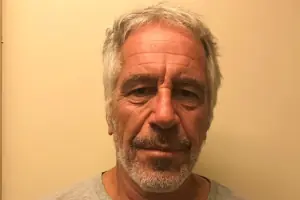








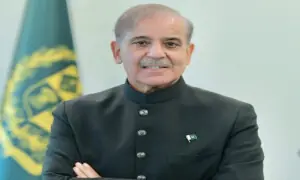
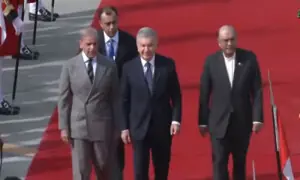
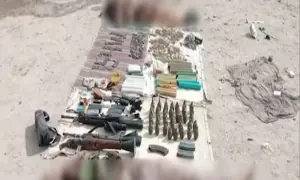



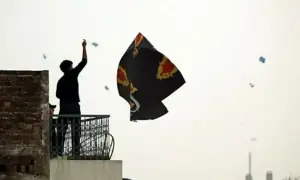
Comments are closed on this story.